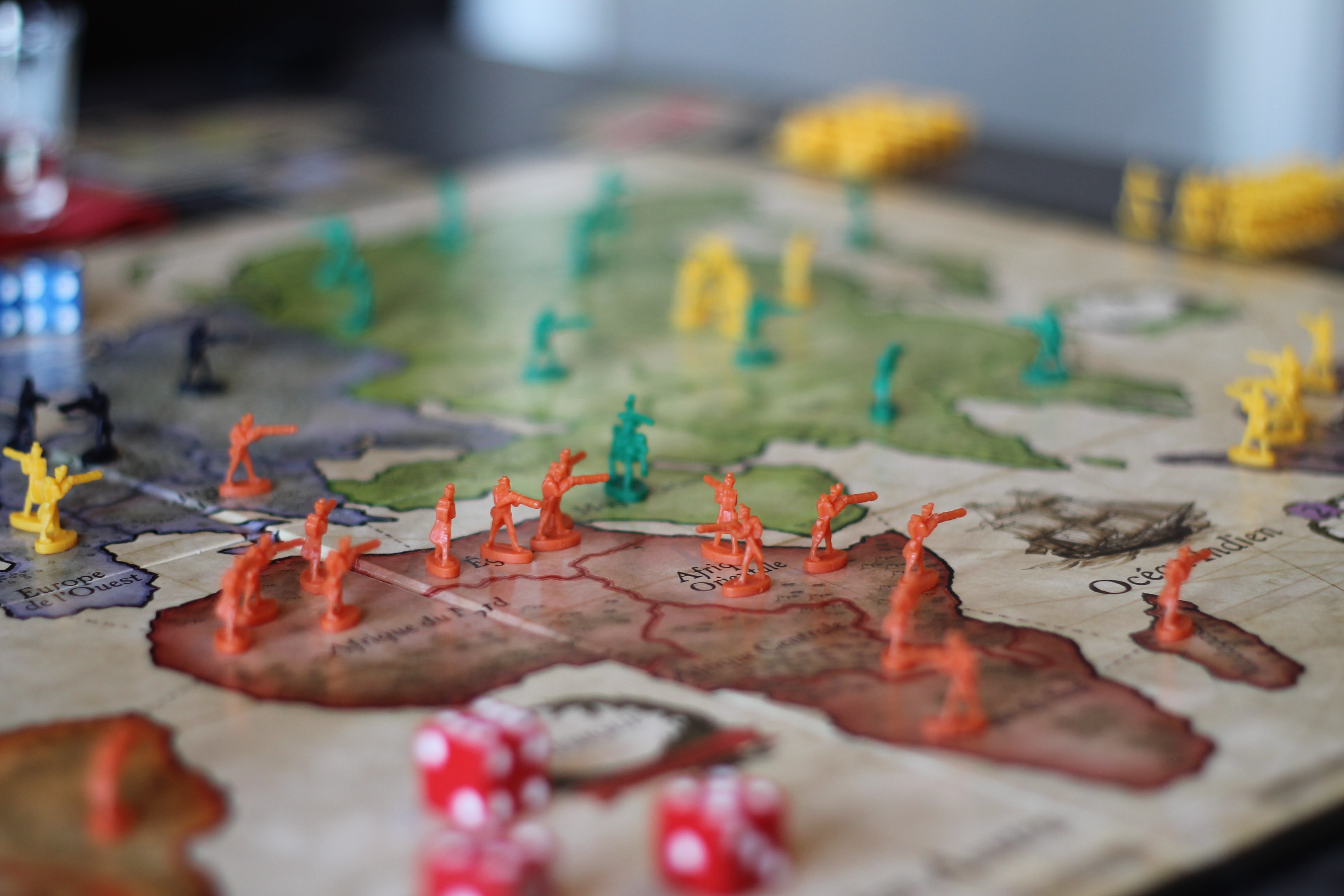Core Mechanics
Game mechanics and core mechanics are sometimes used synonymously but there are distinct differences between the two. Core mechanics are the repetitive game actions the players perform within the game to achieve the goal. For example, the main actions of the game may be to duck and jump to avoid obstacles and navigate through the game.
Game Genres
Marketing analysts and physiologists have been categorizing games into many groups in hopes to develop some insight as to what types of games people enjoy playing.
Games can be categorized by platform, objective, player type, or most commonly game genre.
Game genres essentially categorize games by their core mechanics, for example, a game in which the player repetitively shoots enemies is considered a shooter game.
Because of the many different types of core mechanics a game can have, often game genres are further divided into a super genre and sub-genre.
The most common super game genres are:
- Action
- Simulation
- Strategy
- Adventure
- Casual
- Educational
- Experimental
Action Games
Action Games focus on your timing, reflexes, hand-eye coordination, and quick thinking to achieve a good score.

First Person Shooters (FPS) are action games whose unique core mechanics have made it their own sub-genre. FPS games have the player see through the character's eyes as they run around and try to shoot anything that moves. These games are usually fast-paced and considered a part of the action genre
These games were popularized by games such as Doom, where at the time it would be difficult to render the player's character in real-time 3d, so to compensate you only see the player's weapon, as if you are seeing through the eyes of the character.
Platformer games are another popular sub-genre of action games, which focuses on running and jumping to and from various platforms.
Simulation Games
Simulation games are games based on real-life activities. Popular types of simulation games often stem their own subgenres such as life sims, racing/driving games, sports games, and flight simulators.

Fighting games that focus on hand-to-hand combat could be considered simulation games, but since most of these games focus more so on timing and reflexes than on real-world mechanics, they are often considered a sub-genre of action games.
Because simulation games are designed to provide near real-world experiences they are often used for training and education.
Strategy Games
Strategy game's core mechanics involve planning and managing units and resources. Traditionally strategy games were turned-based, in which each player takes a turn to play. However, real-time strategy (RTS) defines a sub-genre of strategy games that allow the players to simultaneously play in "real-time"

In some games, your goal is to successfully build and run a city; in others, what you have to build, or run can be anything from an army to a roller coaster
Some simulation/building games could fall into this category if the main focus is on strategy
Adventure Games
Adventure games let you control a character in an environment while the story is discovered. The core mechanics of adventure games include exploration and puzzle-solving.
The first use of this core mechanic of exploration and puzzle solving was in the game Adventure which was a Text-Adventure game. Text-Adventures are games in which the world is completely described in narrative and the player interacts with the game world using simple text commands.
Most adventure games today fall into a sub-genre of action-adventure which share core mechanics from both genres. The Legend of Zelda, God of War, and Tomb Raider series are all examples of action-adventure games.

Role Playing Games (RPG) are a sub-genre of adventure games in which the player's actions have a direct impact on the story. Another popular offshoot of RPGs are Massive Multiplayer Online RPGs or MMORPG.
Casual Games
Casual games genre describes games whose core mechanics focus on outwitting and/or solving for the right solution.
Puzzle games are considered a sub-genre of casual games. Puzzles alone are not necessarily a game, but puzzle games typically allow for interaction with the player and the puzzle as well as additional goals beyond just solving the answer. Games like Tetris or 2048 are great examples of such games.

Party games are casual games that could even be considered a sub-genre of puzzle games as they usually involve solving puzzles against friends as part of a mini-game. Super Mario Party is a great example of a party game.
Other common types of casual games include
- Board Games
- Trivia Games
- Card Games
- Rhythm Games
Educational Games
Educational games are games that are purposefully developed for educational reasons.
Early educational games were often ridiculed for the lack of core mechanics beyond just getting the right answer. These games were often boring or sporadically filled with unrelated mini-games to boost engagement.
While educational games have been considered a super genre, today they fall more into a sub-genre of other genres. As mentioned earlier many simulation games are used for educational purposes, but games from other genres have also been used as educational tools. Some noteworthy examples include Civilization a strategy game, and Assassin's Creed Odyssey which is an action-adventure game.
Experimental Games
Experimental games are games in which the core mechanics of the game do not fall into any of the conventional game genres.
One example of an experimental game is LocoRoco, wherein the game there are six varieties of LocoRoco , each identified by their color, appearance, and musical voice, but outside of the first yellow one (Kulche), the rest are unlocked as the player completes the levels. The player can then opt which LocoRoco they want to use for a level, however, this selection has no fundamental gameplay effects and only changes the songs used. LocoRoco act as blobs of gelatin, deforming from their normally round shape when demanded by the environment. Certain beings in the world can change the default shape of the LocoRoco into other forms, such as squares or triangles, which lasts until they wash off in water or they encounter another similar being.
Limitations of Game Genres
While categorizing games provides a common language for developers and publishers to use for describing a game, it can restrict the creative process and lead designers toward tried-and-true gameplay solutions.
The Youtube channel Extra Credits highlighted just how ineffective it is to define games by the current list of game genres.